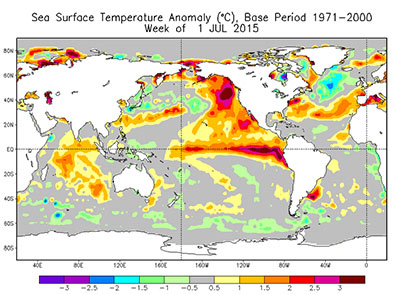-
Tips for becoming a good boxer - November 6, 2020
-
7 expert tips for making your hens night a memorable one - November 6, 2020
-
5 reasons to host your Christmas party on a cruise boat - November 6, 2020
-
What to do when you’re charged with a crime - November 6, 2020
-
Should you get one or multiple dogs? Here’s all you need to know - November 3, 2020
-
A Guide: How to Build Your Very Own Magic Mirror - February 14, 2019
-
Our Top Inspirational Baseball Stars - November 24, 2018
-
Five Tech Tools That Will Help You Turn Your Blog into a Business - November 24, 2018
-
How to Indulge on Vacation without Expanding Your Waist - November 9, 2018
-
5 Strategies for Businesses to Appeal to Today’s Increasingly Mobile-Crazed Customers - November 9, 2018
Warm blob of ocean water, drought warming Puget Sound water
Puget Sound is a seaway within the US state of Washington, an inlet (i.e. “entrance”) of the Pacific Ocean, and a part of the Salish Sea. Because of that, there hasn’t been enough circulation to push the warm blob out of Puget Sound.
Advertisement
With this week’s continuing hot weather, oceanographers from the state Department of Ecology are checking on the natural air conditioner that is Puget Sound and its tributaries, and they’re finding that they, too, are warming up. There have been record- breaking heat-waves, less snowpack and unrelenting drought. The fault of this drastic local weather interference is the so-called…
Buoys bobbing in the South Puget Sound, Hood Canal and the main basin have shown temperatures warmer in both deep and surface waters, some of which are a staggering 4 degrees above normal, says Jan Newton, UW oceanographer.
Hood Canal is running low on its oxygen content, whereas scientists believe marine life is at risk, as of high water temperatures and low levels of oxygen. He will, nevertheless, continue to monitor the situation.
Advertisement
Salmon are among the many types of fish to have experienced a minor holocaust, and this has raised concerns regarding the long-term consequences on the food chain, warned National Oceanic and Atmospheric Administration (NOAA) Fisheries scientist Correigh Greene. This blob, initially discovered in 2013, is abnormally warm, and has been observed to heat the waters around it by seven degrees. Researchers are in shock, as their scientific expectations have been exceeded dramatically. “I thought it would be dry and warm, but I wasn’t expecting this”, said climate scientist Nick Bond from the University of Washington. Already, changes can be seen with rise in the population of toxic algae and more number of reports of dead fish. This past April, a shellfish harvest was closed. Ismael has been married to his wife Linda for 35 years.




























